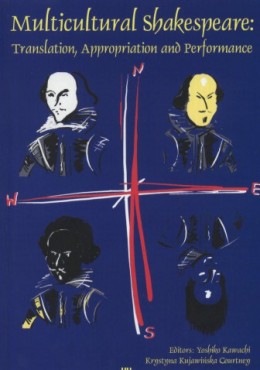Multicultural Shakespeare: Translation, Appropriation and Performance
Multicultural Shakespeare: Translation, Appropriation and Performance
Publishing House: Wydawnictwo Uniwersytetu Łódzkiego
Subject(s): Language and Literature Studies
Frequency: 2 issues
Print ISSN: 2083-8530
Online-ISSN: 2300-7605
Status: Active
- 2015
- 2016
- 2017
- 2018
- 2019
- 2020
- 2021
- 2022
- 2023
- 2024
- Issue No. 1/12
- Issue No. 1/13
- Issue No. 1/14
- Issue No. 1/15
- Issue No. 1/16
- Issue No. 1/17
- Issue No. 1/18
- Issue No. 1/19
- Issue No. 1/20
- Issue No. 1/21
- Issue No. 1/22
- Issue No. 1/23
- Issue No. 1/24
- Issue No. 1/25
- Issue No. 1/26
- Issue No. 1/27
- Issue No. 1/28
- Issue No. 1/29
- Issue No. 1/30
Articles list
{{ article.TitleOriginalLanguage }}
{{ article.TitleOriginalLanguage }}
({{ article.TitleEnglish }})
- Publication: {{ article.Publisher }} ({{ article.Issue }})
- Author(s): {{ article.Authors }}
- Contributor(s): {{ article.Contributors }}
- Language: {{ article.Language }}
- Subject(s): {{ article.Subjects }}
- Issue: {{ article.Issue }}
- Page Range: {{ article.PageRange }}
- No. of Pages: {{ article.NumberOfPages }}
- Keywords: {{ article.Keywords }}
- Summary/Abstract: {{ article.SummaryAbstract }}
- Price: {{ common.currency(article.Price) }}
Short Description
Multicultural Shakespeare developed into a publication mediating vigorous discussions on the adaptation of Shakespeare's texts, their ontology and cross-cultural significance. It created an opportunity to present the universal dimension of Shakespeare's works by focusing on their local values found in various cultures worldwide.
First printed in Japan, now published in Łódź, Poland, Multicultural Shakespeare seeks co-operation with people who make, teach or simply enjoy theatre and literature, and who are interested in addressing the problems of translating, staging, reading and teaching Shakespeare.
Aims and Scope / Why subscribe and read
- international journal devoted to Shakespearean studies,
- a forum in which researchers, especially those from non-English-speaking backgrounds, can air local concerns and themes that contribute to the creation and understanding of Shakespeare as global phenomenon.

